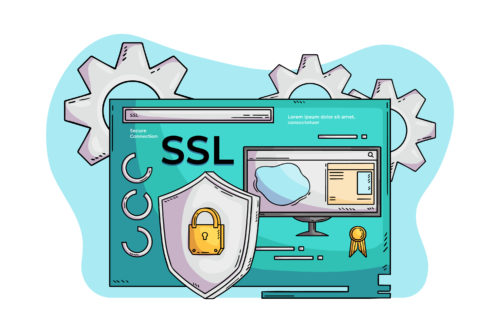Practical Steps for a Secure Ecommerce
In today’s fast-paced world, the security of your ecommerce is critical to maintaining customer trust and protecting sensitive data. With the growing threat of cyber attacks, ensuring the security of your e-commerce has become more critical than ever. In this article, we present 7 key steps to strengthen the protection of your online store and safeguard your customers’ information. Implement these recommendations and build a trustworthy and secure platform for your buyers.
1. Update and Protect your Ecommerce Platform
The basis of a secure ecommerce is to have an updated and protected platform. If you use an ecommerce platform, like Shopify or WooCommerce, make sure you always keep it up to date with the latest versions and security patches. Hackers often look for vulnerabilities in older versions to infiltrate websites.

Check and Update your Plugins and Extensions
Also, if you use plugins or extensions to add functionality to your online store, it is essential to regularly check their security and update them to the latest versions. Developers release updates to fix possible security holes, so keeping everything up to date will significantly reduce risks.
2. Implement an SSL Certificate
An SSL (Secure Sockets Layer) certificate is a basic requirement for security in any e-commerce. This certificate encrypts the communication between the client’s browser and the web server, protecting the data transmitted, such as payment information and personal data.

3. Use Strong Passwords and Two-Factor Authentication
Weak passwords are open doors for cybercriminals. Make sure that you and your employees use strong passwords that include letters, numbers, and special characters. Also, it implements two-factor authentication to add an extra layer of security to accounts.
4. Back Up Regularly
Data loss can be devastating to your business. Establish a routine to make periodic backup copies of all the critical information of your e-commerce. Store these copies in a secure location, preferably off the main server, to ensure that you can recover the data in the event of an attack or system failure.

Try Backup Restore
Don’t forget to regularly test restoring your backups to make sure data can be successfully recovered in an emergency.
5. Constantly monitor your Ecommerce
Actively monitor any suspicious activity in your online store. It uses monitoring tools and intrusion detection systems to identify potential unauthorized access attempts. Early detection will allow you to take quick action to protect your data.
Set Security Alerts
Set up alerts to receive immediate notifications if any suspicious or unusual activity is detected in your e-commerce.
6. Educate your Employees on Digital Security
Employees also play an important role in the security of your ecommerce. Provide regular training on digital security practices and phishing awareness so they are prepared to identify and avoid potential threats.
7. Complies with Safety Regulations
Make sure you comply with relevant security regulations and regulations, such as the General Data Protection Regulation (GDPR) in Europe or the Consumer Data Protection Act in the United States. Proper compliance will help you avoid fines and penalties, and show your customers that you take their privacy and security seriously.
Do not underestimate the importance of security in your ecommerce. By following these 7 steps, you can establish a solid foundation to protect your online store and your customers’ information. Remember that security is an ongoing process and that investing in it will earn you the trust and loyalty of your customers over time.
Protect your ecommerce and provide a secure shopping experience for everyone!
If you’re looking for the perfect team to help you build an effective website, we’re here to help. Also, Contact us today to get more information about our Virtual Store Design services.










